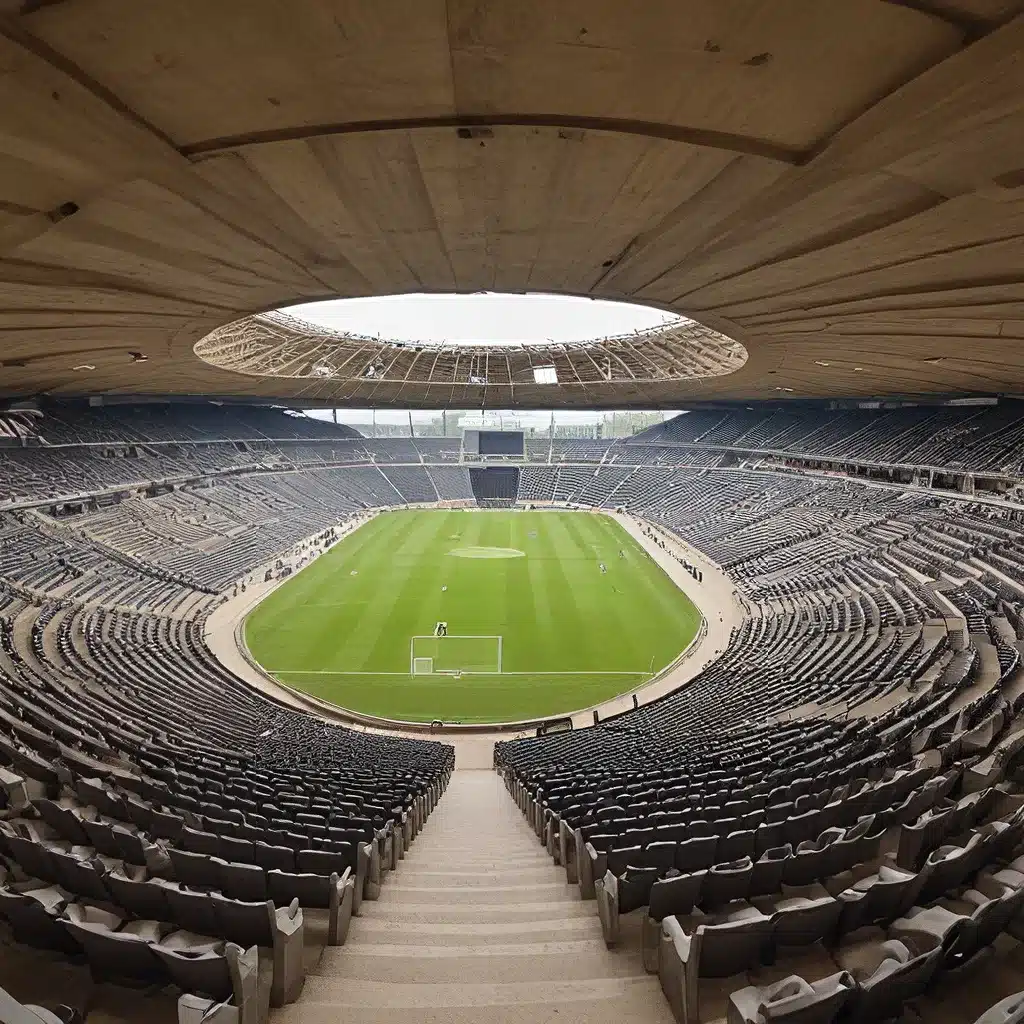
The Olympiastadion: A Storied Sporting Venue
The Olympiastadion in Berlin is a testament to the power of sports to transcend boundaries and unite people. As a football stadium, it has played a significant role in shaping the identity of Germany as a nation. From hosting the controversial 1936 Olympic Games to serving as the home ground for some of the country’s most passionate football fans, the Olympiastadion has witnessed a remarkable journey through the decades.
Nestled in the heart of Berlin, the Olympiastadion stands as a powerful representational space, where emotions and national pride converge. As one approaches the stadium, the atmosphere is electric, with noisy German fans gathering outside, excitedly anticipating the upcoming match. The sight of the architectural grandeur of the Olympiastadion is truly awe-inspiring, leaving a lasting impression on all who visit.
Reflecting on the Stadium’s Contentious Past
However, the Olympiastadion’s history is not without its complexities. The stadium’s association with the 1936 Nazi Olympics and its role in propagating the ideology of Aryan racial superiority cannot be ignored. As one pauses to make sense of the stadium’s past, the unavoidable presence of this dark chapter in history is palpable.
Just outside the stadium, spectators congregate along Jesse-Owens-Allee, a street named after the African American athlete who won four gold medals at the 1936 Olympics, effectively challenging the Nazi regime’s claims of Aryan supremacy. This powerful juxtaposition prompts visitors to reflect on the significant political changes that have occurred in the modern history of Berlin.
A Unifying Force for Contemporary Germany
Despite its complex history, the Olympiastadion has evolved to become a symbol of unity and togetherness in contemporary Germany. The stadium’s role in hosting international football matches has played a significant part in enhancing feelings of national pride and fostering a sense of belonging among fans.
The absence of exclusively segregated sections for home and away supporters at the Olympiastadion is a telling example of the stadium’s inclusive atmosphere. Rather than the typical separation seen in some English football stadiums, spectators from both teams are seated alongside each other, creating a welcoming environment for all visitors.
Moreover, the prominence of families and children at the Olympiastadion events suggests a more family-friendly and less intimidating atmosphere compared to some other football stadiums. The police presence, while visible, is far from imposing, with officers even inviting traveling fans to take pictures with them – a stark contrast to the often more confrontational approach seen in some English football grounds.
The Olympiastadion as a Symbol of Unification
The Olympiastadion’s significance extends beyond its role as a sporting venue. The stadium has become a symbol of Germany’s unification, a physical representation of the country’s journey from a divided past to a more cohesive present.
This sentiment is further reinforced by the visually displayed EURO 2024 slogan “United By Football”, which captures the power of the sport to bridge divides and foster a sense of togetherness. Football, in many ways, has become a leading force in reconfiguring contemporary German national identities, moving beyond the narratives of separation that existed during the Cold War era.
Experiencing the Olympiastadion’s Unique Atmosphere
When attending a match at the Olympiastadion, visitors are immediately drawn into the stadium’s captivating atmosphere. The national anthems played before the game create a reflective moment, as the familiar tunes evoke a range of emotions and historical associations.
The collective energy of the 74,000 football fans eagerly anticipating the spectacle is palpable, with the stadium’s grandeur and architectural elegance only adding to the overall experience. The stadium’s design, with its towering stands and impressive facade, serves to amplify the intensity of the match-day atmosphere, creating a truly immersive experience for all in attendance.
Exploring the Olympiastadion’s Accessibility
The Olympiastadion offers a range of options for visitors to plan their visit. For those seeking accommodation, there are several hotels and hostels located in the vicinity, with reception services available 24 hours a day. Additionally, the stadium’s apartments feature concierge services from 7 AM to 9 PM, providing a convenient option for those looking for more personalized accommodation.
Reservations for the Olympiastadion can be made from 10 AM to 6 PM, Sunday through Friday, ensuring that visitors can easily plan their visit and secure their tickets in advance. This level of accessibility and planning options allows for a seamless and enjoyable experience for all who wish to explore the grandeur of this iconic Berlin landmark.
Conclusion: The Enduring Legacy of the Olympiastadion
The Olympiastadion in Berlin stands as a testament to the power of sports to shape national identity and foster a sense of unity. From its contentious past to its role in contemporary Germany, the stadium has witnessed a remarkable transformation, becoming a symbol of the country’s journey towards a more inclusive and harmonious future.
As visitors step into the Olympiastadion, they are not only experiencing the thrill of a football match but also engaging with the rich tapestry of German history and culture. The stadium’s ability to transcend its past and emerge as a unifying force is a testament to the resilience and adaptability of both the sport and the nation it represents.
Whether you are a passionate football fan, a history enthusiast, or simply someone seeking to immerse themselves in the vibrant culture of Berlin, the Olympiastadion promises an unforgettable experience that will leave a lasting impression. As you explore this iconic venue, you will undoubtedly find yourself captivated by the grandeur, the passion, and the enduring legacy that the Olympiastadion embodies.

